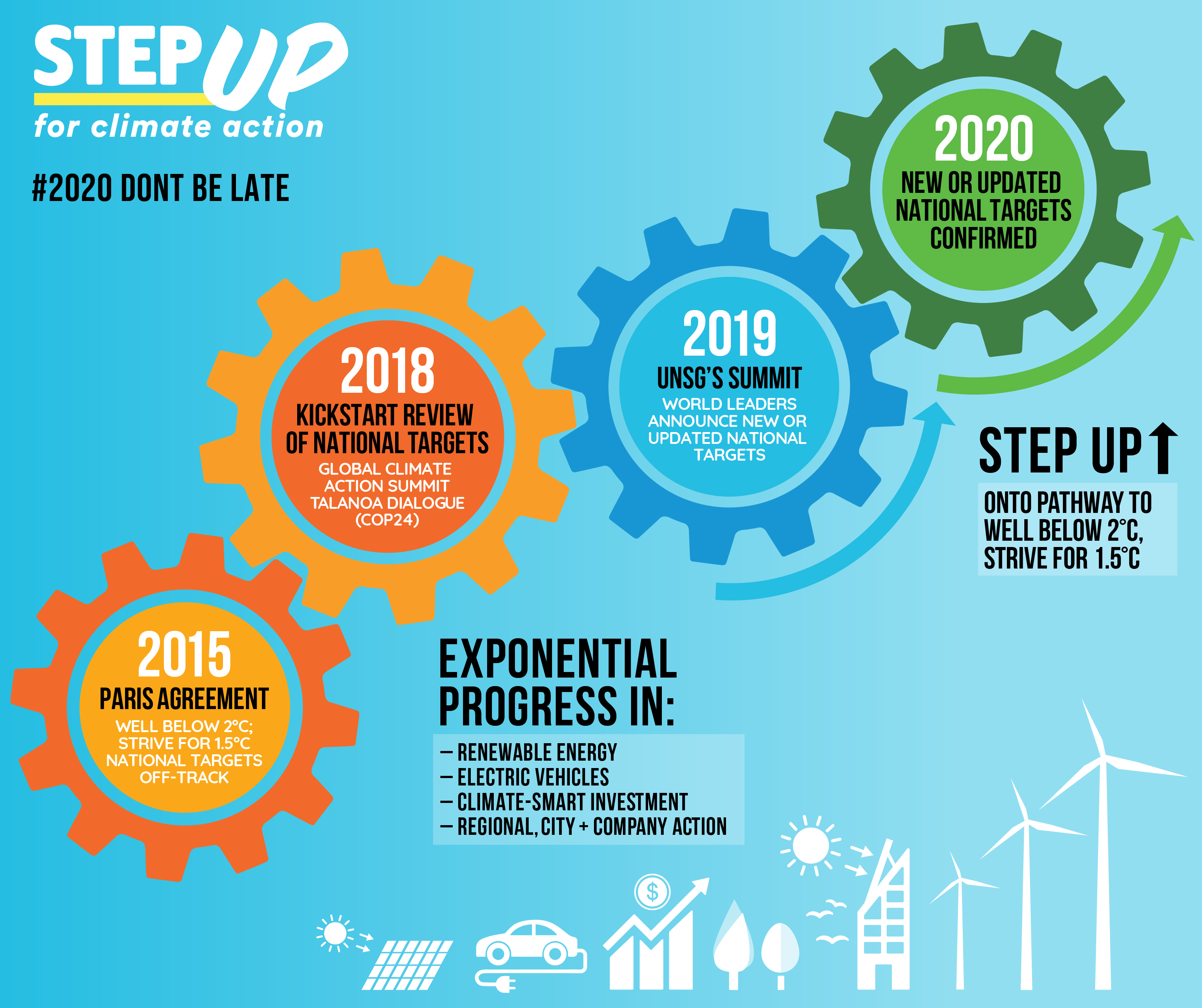Climate change is speeding up. Our response needs to be even faster

As we have been rudely reminded this summer, there is no more room in the atmosphere for our carbon.pollution
Image: REUTERS/Arnd Wiegmann
Stay up to date:
Climate Crisis
The race is on. This northern summer’s deadly, record-breaking heatwaves and wildfires leave us in no doubt that the impacts of global warming are accelerating, in many cases much faster than scientists predicted.
One of the most important, but least understood, aspects of the Paris Agreement is that it legally obliges every country to deepen its emission reduction targets every five years. I call this five-yearly cycle the Agreement’s beating heart, because it provides the life force for achieving the temperature goals that will keep the worst impacts of global warming at bay.
In 2015, we all knew that the initial round of commitments was not deep enough to get us on track for a safer climate future. So we created a first ‘heartbeat moment’ in 2020 for countries to renew or update their targets, reflecting their highest possible national ambition.
The work starts now to ensure that the Paris Agreement’s first heartbeat is loud and strong. In September, California is hosting leaders from India, China and all over the world at the Global Climate Action Summit. The massive gathering will showcase the cutting edge of local and regional climate action, and offer a platform for new commitments that accelerate the low-carbon transformation that is well underway. In doing so, regions, cities and companies will show national leaders how much space and opportunity there is for deeper national targets.
We know that for smaller countries still grappling with the technical and administrative task of analyzing their economic sectors and measuring emissions, increasing ambition will not be easy. Financial and practical assistance for the development of climate action plans remains essential to help these countries leapfrog fossil fuels to power their growth with clean energy.

For the bigger, more affluent countries, the obstacles are often more political than practical. But, when reviewing progress and new opportunities for rapid decarbonization, many will find that despite some political headwinds, profound shifts in the real economy have them well ahead of where they thought they would be when they set their targets in 2015. In particular, some of the solutions, such as renewable energy, are rapidly becoming cheaper than the polluting alternatives, and their deployment is growing exponentially - in many cases much faster than economists predicted.
With renewable energy production predicted to be cheaper than fossil fuels in all markets by 2020 (something that was unimaginable in 2015), investors are very quickly decarbonizing their portfolios. In 2017, new global investments in clean energy ($333 billion) greatly outstripped new fossil fuel investments ($144 billion). The momentum is irreversible and unstoppable.
The political response has been encouraging. In April, a group of seven EU countries called for the EU to deepen its 2030 emissions target, while the declaration from the Macron-Merkel summit in June proposed early 2020 as the timeline for doing so.
We have also heard that both China and India are tracking well ahead of their Paris targets. This leaves space for possible announcements of bigger, bolder goals by President Xi and Prime Minister Modi at the UN Secretary-General’s Climate Summit in September 2019. This will build on progress made in San Francisco this September, and will be a critical signal for the success of the Paris heartbeat in 2020.
China, India and the EU account for more than 40% of global emissions. Working together, they could help convince other big and mid-sized economies, such as those in Asia and Latin America, that they have ample room and economic incentives to accelerate. For example, Chile’s recent decision to phase out coal will see it well ahead of its Paris target as we move into the next decade.
Time is of the essence. As we have been rudely reminded this summer, there is no more room in the atmosphere for our carbon pollution. Going forward from 2020, annual global greenhouse gas emissions need to be half of what they were in the preceding decade. The good news is that countries and leaders who understand the need for speed are accelerating their climate action and also accelerating their growth.
A new industrial revolution is upon us, one that puts economic development and environmental protection on a level playing field. One that understands that ecological health and balance is intrinsic to long term well-being and prosperity.
Those who embrace this change will ultimately win the race.
Don't miss any update on this topic
Create a free account and access your personalized content collection with our latest publications and analyses.
License and Republishing
World Economic Forum articles may be republished in accordance with the Creative Commons Attribution-NonCommercial-NoDerivatives 4.0 International Public License, and in accordance with our Terms of Use.
The views expressed in this article are those of the author alone and not the World Economic Forum.
Related topics:
Forum Stories newsletter
Bringing you weekly curated insights and analysis on the global issues that matter.
More on Climate ActionSee all
Tom Elliott and Tainah Godoy
April 3, 2025
A third of crucial fungi endangered, and other nature and climate stories you need to read this week
Kate Whiting and Madeleine North
April 2, 2025
Ulrich Scherbel
April 1, 2025
Nunzio Peleggi
March 28, 2025
Jack Hurd
March 27, 2025




